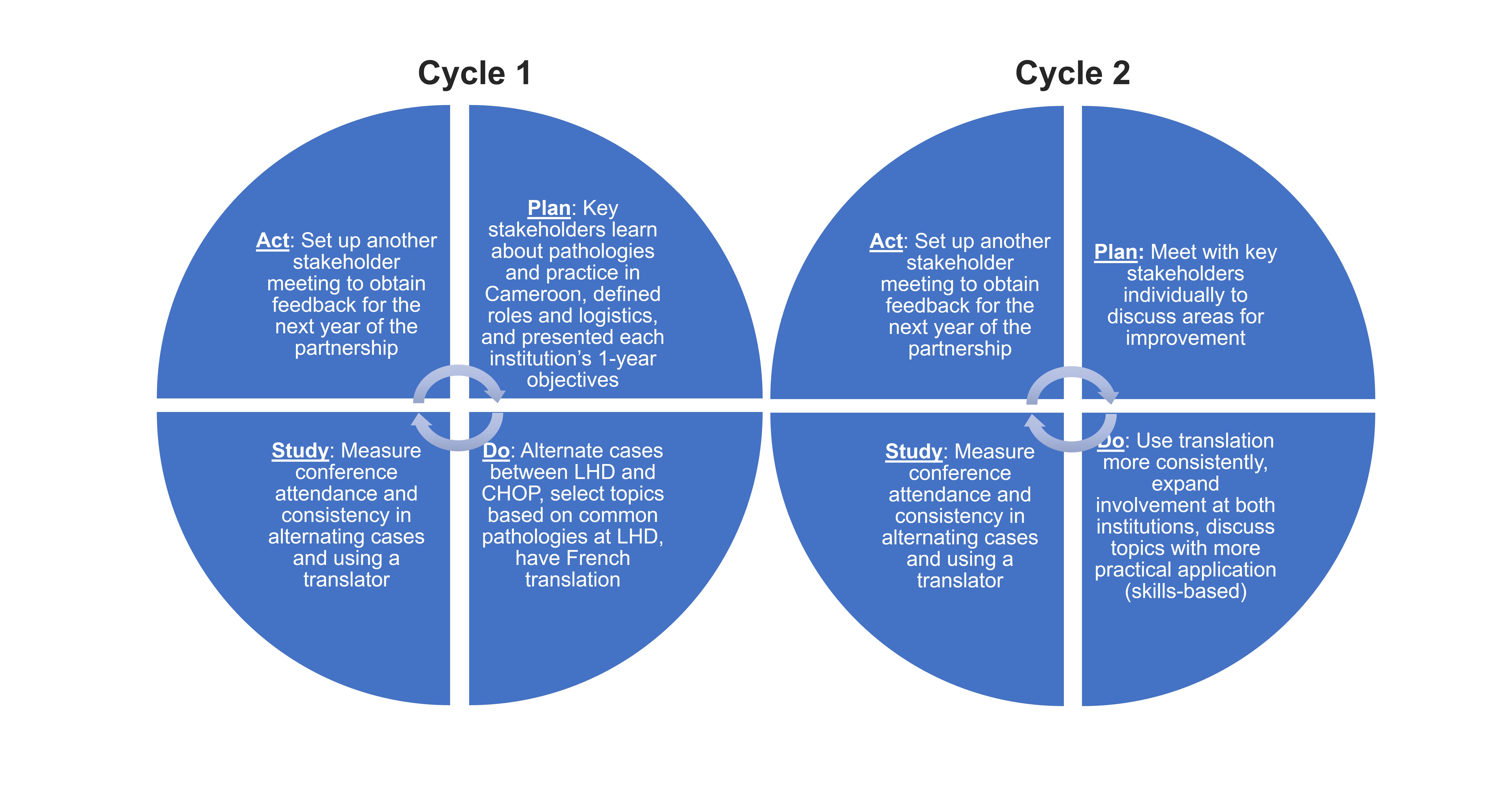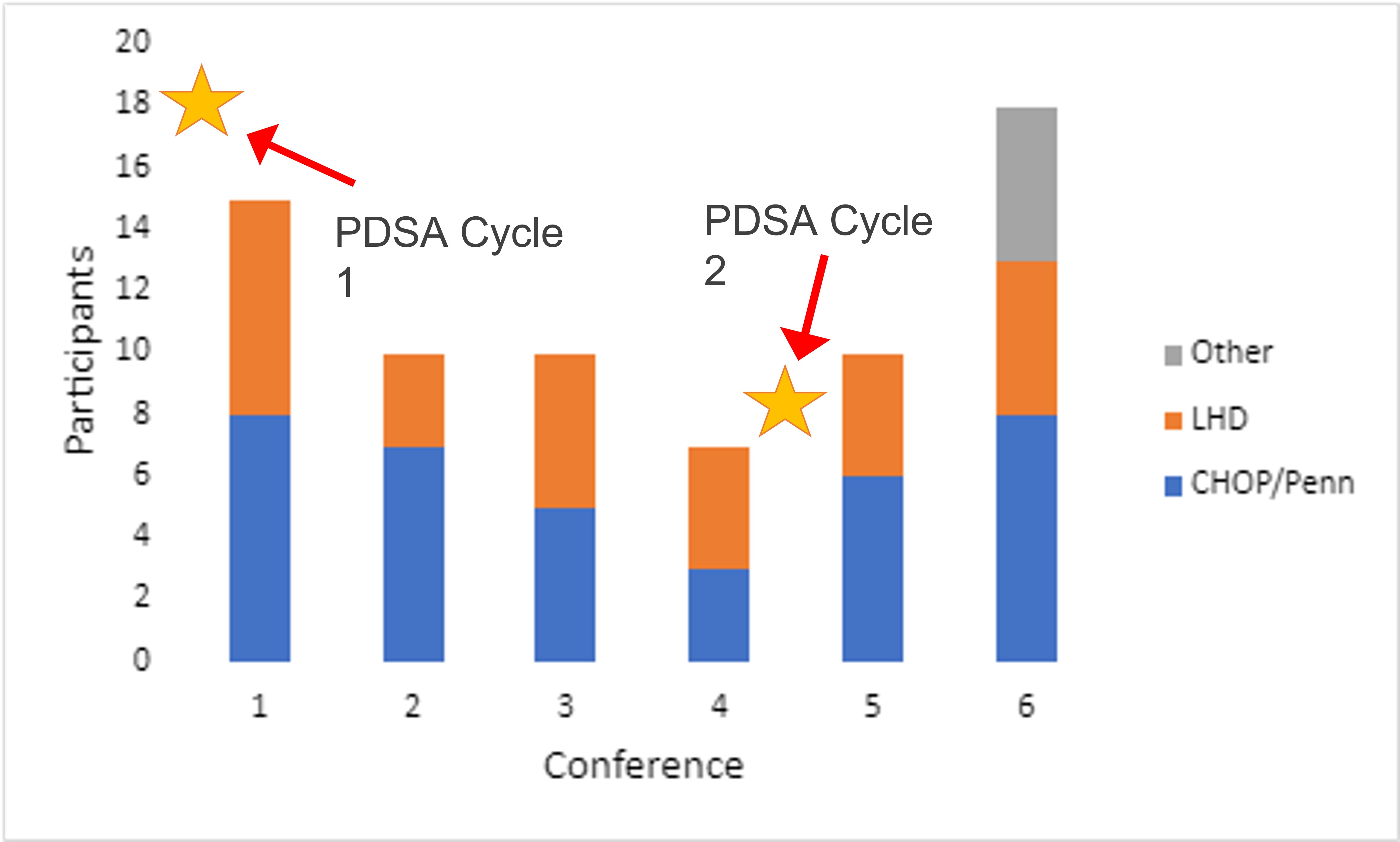Global Neonatal & Children's Health
Category: Abstract Submission
Global Child and Adolescent Health III
522 - Developing and optimizing a global health education partnership during the COVID-19 pandemic
Sunday, April 24, 2022
3:30 PM - 6:00 PM US MT
Poster Number: 522
Publication Number: 522.318
Publication Number: 522.318
Bianca Nfonoyim, Childrens Hospital of Philadelphia, Philadelphia, PA, United States; Madeline Chandra, Children's Hospital of Philadelphia/Hospital of University of Pennsylvania, Philadelphia, PA, United States; Andrew P. Steenhoff, Children's Hospital of Philadelphia, Philadelphia, PA, United States; Lucie V. Ngaba, CHildren's Hospital of Philadelphia, Philadelphia, PA, United States; Charlotte Eposse Ekoube, Laquintinie hospital/ faculty of médecine and pharmaceutical sciences, university of Douala, Douala, Littoral, Cameroon
- BN
Bianca Nfonoyim, MD (she/her/hers)
Pediatrics resident
Childrens Hospital of Philadelphia
Philadelphia, Pennsylvania, United States
Presenting Author(s)
Background: Global health education (GHE) partnerships provide opportunities for mutual leadership, mentorship and health systems strengthening. The COVID-19 pandemic provided opportunities to rethink GHE partnerships for more equitable benefit.
Objective: To build upon existing partnerships between doctors at Laquintinie Hospital in Douala, Cameroon (LHD) and the Children’s Hospital of Philadelphia (CHOP) to develop a sustainable and equitable partnership between doctors and medical students at both institutions.
Design/Methods: Using a virtual format and iterative Plan-Do-Study-Act (PDSA) cycles, we established and continually improved a GHE partnership between doctors and medical students.
Results: This general pediatrics partnership began November 2020, led by a pediatric hematologist and chair of pediatrics at LHD, and two first year residents at CHOP, supported by CHOP faculty and a citizen diplomat. In the initial PDSA cycle, key stakeholders learnt about medical training, pathologies and practice in Cameroon, defined roles and logistics, and presented each institutions’ 1-year objectives. This first PDSA cycle focused on the shared objective of bidirectional knowledge exchange between trainees of all levels using case presentations with French translation. LHD and CHOP each presented 2 cases over a 10-month period. Conferences occurred every 6-8 weeks, and at least 3 participants from each hospital were present during each conference. Attendance was generally equal between both institutions. Challenges included technological difficulties, delayed start time, and difficulty incorporating translation. Additional PDSA cycles incorporated feedback from all leaders and participants, resulting in a more stream-lined process for running conferences that minimized delays and consistently utilized translation. We observed increased attendance from both LHD and CHOP, involvement of experts from additional institutions world-wide, and integration of skills-based sessions addressing LHD doctors’ specific goals. Conclusion(s): An iterative approach to GHE partnership development with shared leadership allows for ongoing review of both partners’ objectives to foster continued engagement, expansion, and mutual benefit.
PDSA Cycles PDSA Cycle 1 occurred from November 2020 to June 2021. PDSA Cycle 2 began July 2021 and is ongoing
PDSA Cycle 1 occurred from November 2020 to June 2021. PDSA Cycle 2 began July 2021 and is ongoing
Conference Attendance Over the First Year of the Partnership
Objective: To build upon existing partnerships between doctors at Laquintinie Hospital in Douala, Cameroon (LHD) and the Children’s Hospital of Philadelphia (CHOP) to develop a sustainable and equitable partnership between doctors and medical students at both institutions.
Design/Methods: Using a virtual format and iterative Plan-Do-Study-Act (PDSA) cycles, we established and continually improved a GHE partnership between doctors and medical students.
Results: This general pediatrics partnership began November 2020, led by a pediatric hematologist and chair of pediatrics at LHD, and two first year residents at CHOP, supported by CHOP faculty and a citizen diplomat. In the initial PDSA cycle, key stakeholders learnt about medical training, pathologies and practice in Cameroon, defined roles and logistics, and presented each institutions’ 1-year objectives. This first PDSA cycle focused on the shared objective of bidirectional knowledge exchange between trainees of all levels using case presentations with French translation. LHD and CHOP each presented 2 cases over a 10-month period. Conferences occurred every 6-8 weeks, and at least 3 participants from each hospital were present during each conference. Attendance was generally equal between both institutions. Challenges included technological difficulties, delayed start time, and difficulty incorporating translation. Additional PDSA cycles incorporated feedback from all leaders and participants, resulting in a more stream-lined process for running conferences that minimized delays and consistently utilized translation. We observed increased attendance from both LHD and CHOP, involvement of experts from additional institutions world-wide, and integration of skills-based sessions addressing LHD doctors’ specific goals. Conclusion(s): An iterative approach to GHE partnership development with shared leadership allows for ongoing review of both partners’ objectives to foster continued engagement, expansion, and mutual benefit.
PDSA Cycles
 PDSA Cycle 1 occurred from November 2020 to June 2021. PDSA Cycle 2 began July 2021 and is ongoing
PDSA Cycle 1 occurred from November 2020 to June 2021. PDSA Cycle 2 began July 2021 and is ongoingConference Attendance Over the First Year of the Partnership

